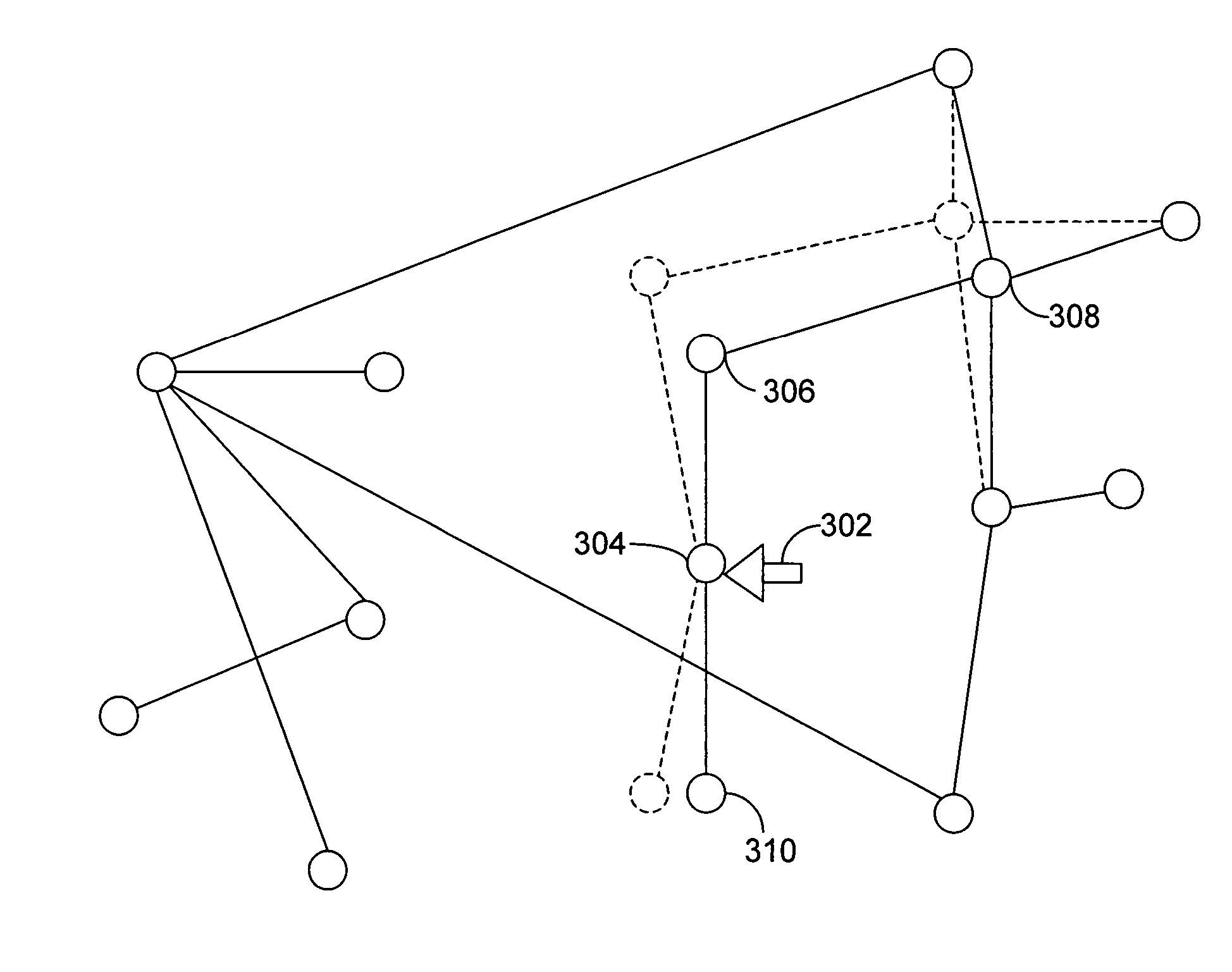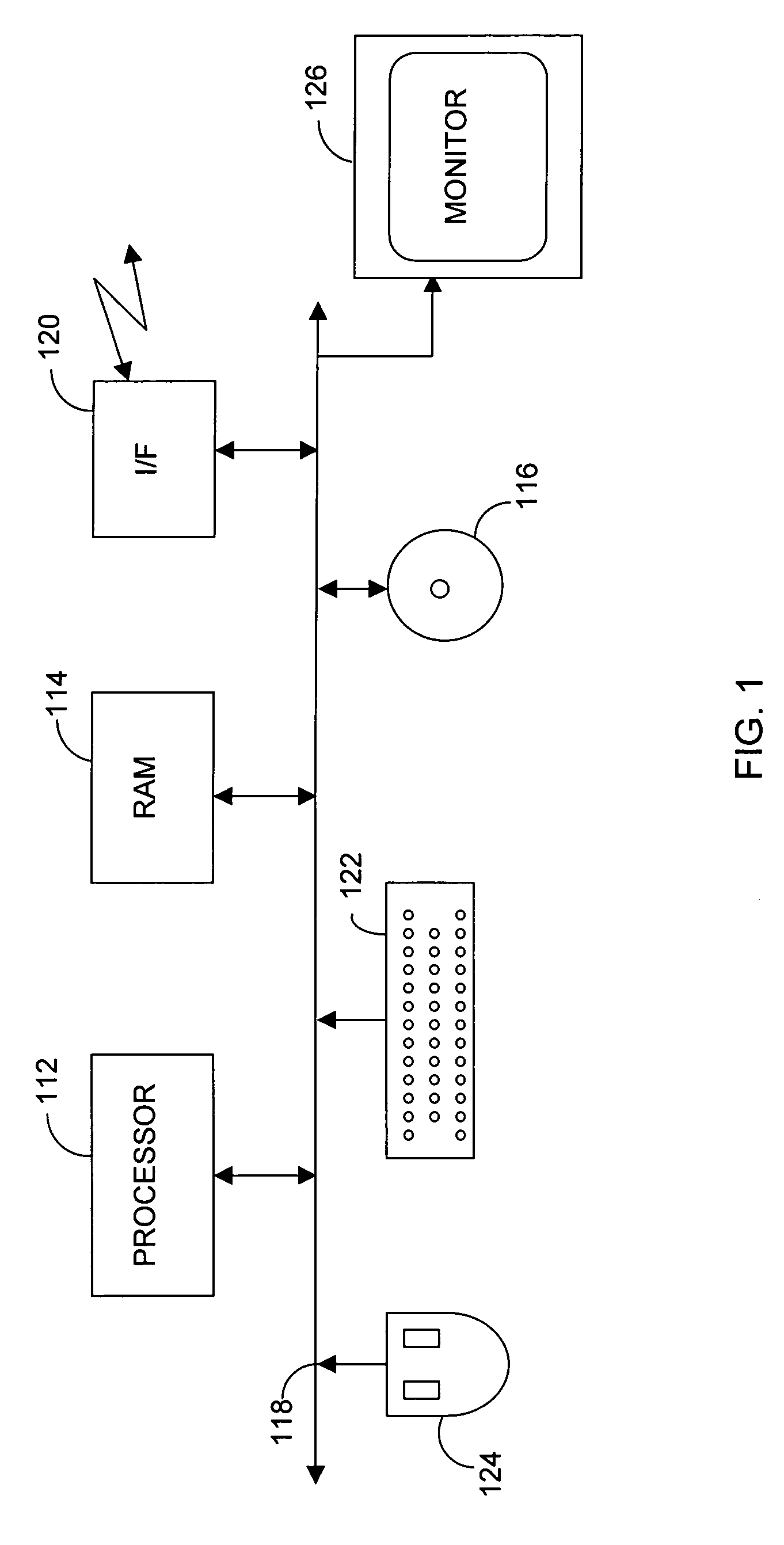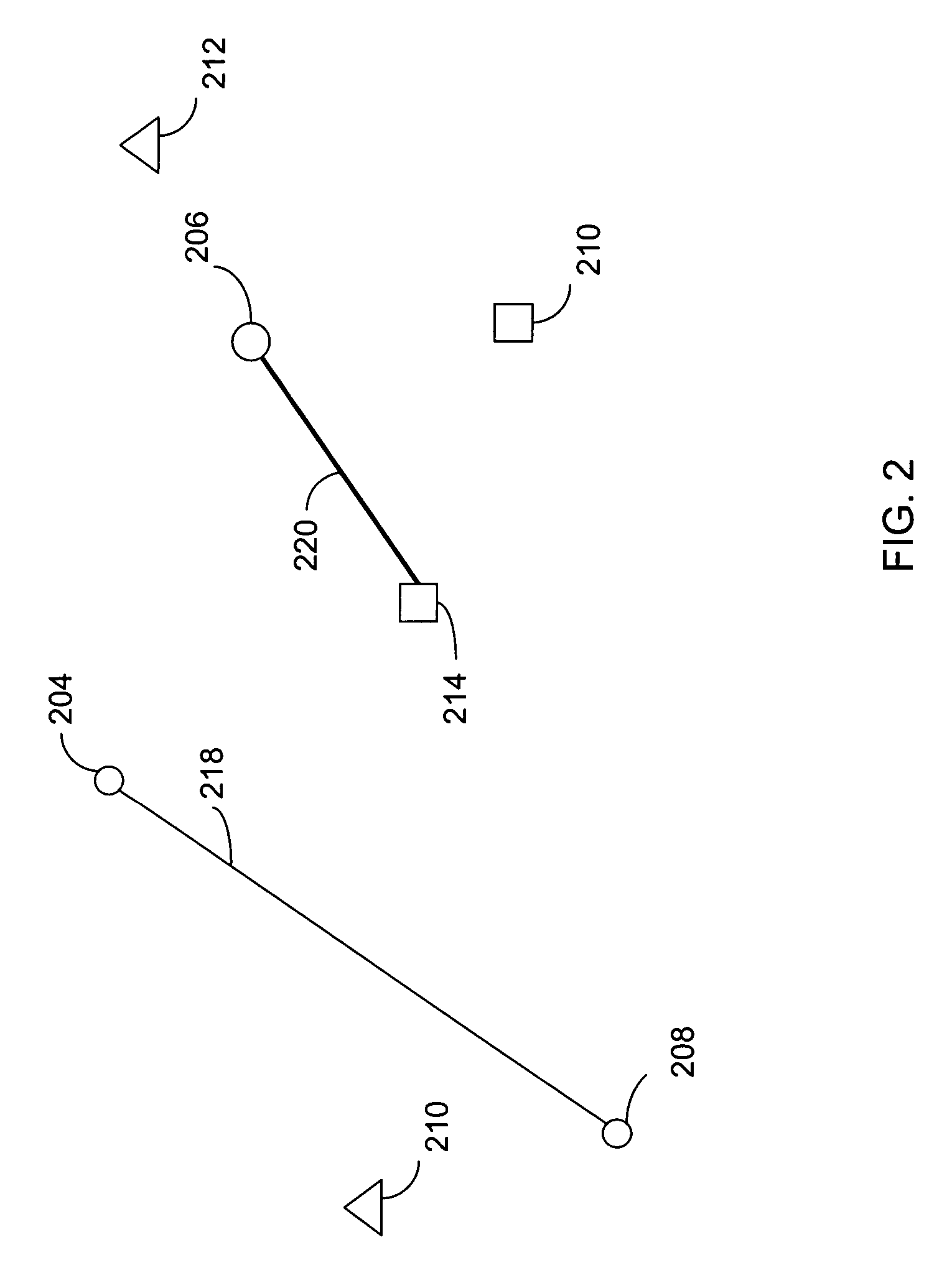Motion-based visualization
a motion-based visualization and motion-based technology, applied in the field of data display, can solve the problems of difficult to determine the way to represent many other types of data, significant problems, and often difficult to detect patterns readily apparent to humans, and achieve the effect of enhancing effectiveness
- Summary
- Abstract
- Description
- Claims
- Application Information
AI Technical Summary
Benefits of technology
Problems solved by technology
Method used
Image
Examples
Embodiment Construction
[0026]The present invention can be implemented on a wide range of hardware and / or software, of which FIG. 1 an example. A processor 112 operates in accordance with instructions loaded into a memory 114. The instructions will ordinarily have been loaded into the memory from local persistent storage in the form of, say, a disc drive 116 with which the memory communicates by way of a local bus 118. The instructions may additionally or instead be received by way of a communications interface 120 from a remote instruction source, which would usually be some sort of persistent storage, too. The system may also receive user input from devices such as a keyboard 122 or mouse 124. Electromagnetic signals representing the instructions may take any form. They are typically conductor-guided electrical signals, but they may also be visible- or invisible-light optical signals or microwave or other radio-frequency signals.
[0027]The instructions indicate to the processor how it is to operate on dat...
PUM
 Login to View More
Login to View More Abstract
Description
Claims
Application Information
 Login to View More
Login to View More - R&D
- Intellectual Property
- Life Sciences
- Materials
- Tech Scout
- Unparalleled Data Quality
- Higher Quality Content
- 60% Fewer Hallucinations
Browse by: Latest US Patents, China's latest patents, Technical Efficacy Thesaurus, Application Domain, Technology Topic, Popular Technical Reports.
© 2025 PatSnap. All rights reserved.Legal|Privacy policy|Modern Slavery Act Transparency Statement|Sitemap|About US| Contact US: help@patsnap.com



